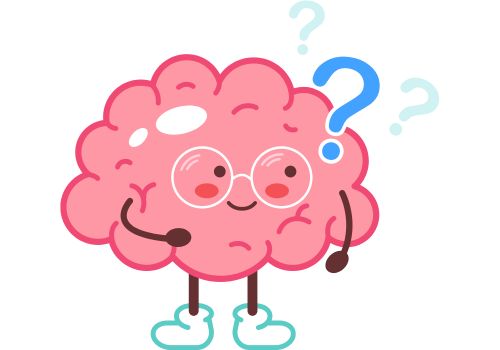Executive function is a term that refers to the skills and discipline that aid people in starting and completing tasks. Having good executive function can help a person manage time, multitask, pay attention for long periods, stay focused on a task, plan and organize in advance, and much more.
When these skills are untrained or out of shape, it can lead to worse outcomes for people of all ages, but it can be especially noticeable in children. By improving executive function skills, children can do better in school, excel in social situations, and have less stress and anxiety.
What Areas Do Executive Function Problems Affect?
The skills associated with executive function are generally regulated by the frontal lobe of the brain, an area that may not fully develop until a person is in their mid-20s. This means that many children struggle with executive function disorder when they’re younger, but they have a good chance of developing those skills through experience as their brains mature.
Executive function disorder often manifests in ways that mirror other types of neurodivergence, such as ADHD and depression. These self-management issues make it difficult to pay attention, express creativity, develop consistent good habits, and organize. For children, this can look like problems remembering or completing homework, an inability to successfully plan a large project, procrastination, a short attention span, and problems with staying focused on one task.
Luckily, executive function is like a muscle. Exercising and improving executive function with your children can help them manage their behavior and perform better in school.
How Kids Can Improve Their Executive Functions on Their Own
There are many tasks you can create for your kids to consistently flex their executive functioning skills on their own. When choosing activities for this purpose, the goal is to ensure that the activity engages your child and challenges them to use planning, focus, time management, and other skills simultaneously. It’s also important that these activities be fun and interesting, which helps build a positive association with all the mental effort. Here are a couple of activities that may fit this criteria.
Cooking
Cooking is a very involved process that can teach kids a number of important skills. Cooking involves planning ahead what ingredients will be used, managing the time it takes to prepare, cook, and serve the meal, and focusing on multiple tasks, such as boiling water in one pot and cooking vegetables in another. Cooking also helps kids adapt to changes when something doesn’t work out or one ingredient is missing. It’s a creative process that allows for both precision and experimentation. Plus, it never hurts a teenager to know how to cook!
Arts and crafts
Another helpful and creative activity for older children and teens is participating in some form of arts and crafts activity. Let your child explore a form of art, whether it’s playing music, writing plays, painting landscapes, carving figurines, scrapbooking, or designing clothes. All of these activities are excellent ways to practice executive function skills. They all take focus and dedication, and they reward routine and discipline. You can also encourage your child to take on a long-term project that will challenge their planning and organizational skills.
How Kids Can Build Executive Functioning Skills With a Parent or Coach
Younger children will likely need more guidance and patience when improving executive function. They benefit from interactive and hands-on learning. Even something as simple as telling or reading stories to your young ones can help them learn to focus and engage their working memory.
They’ll also learn a lot from collaborative storytelling games, such as taking turns adding sentences to an improvised story. Fine motor control practices, such as balancing or measuring liquids while preparing dinner as a family, are other great ways of improving executive function in younger kids.
If you enlist the help of an executive function coach, they may focus on long-term goals with younger children. Exercising conceptual and abstract thinking and practicing planning and organization can be especially effective when overseen by a coach.





